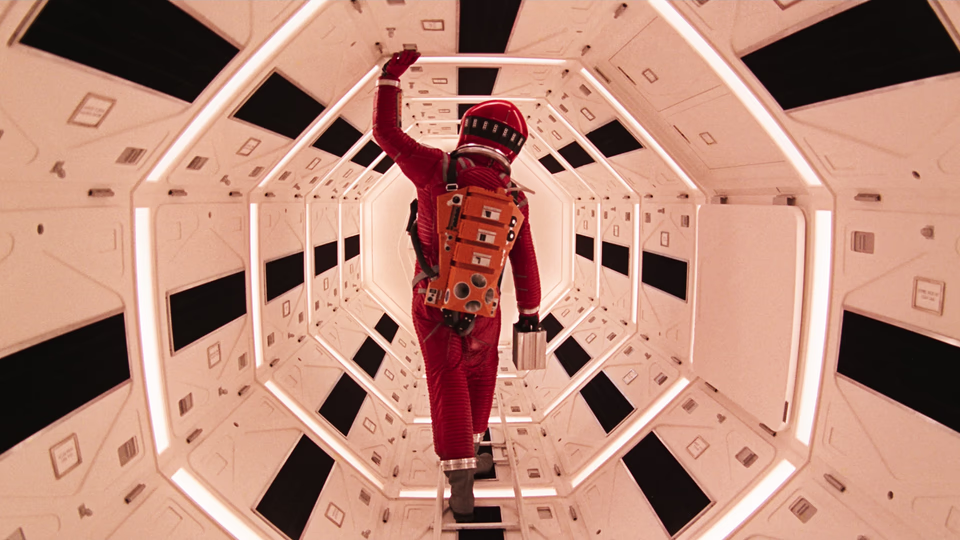2001: A Space Odyssey

A giant monolith leads a group of astronauts to Jupiter in a search of the origins of humans.
2001: A Space Odyssey is the greatest science fiction movie ever made. The script by director Stanley Kubrick and Arthur C. Clarke, while certainly fantastic, remains grounded in scientific fact, and never sacrifices realism for drama.
The film is relentlessly visual. Kubrick eschews any kind of voice over narration and keeps the dialog minimal, thus forcing viewers to engage the film on a deeper level and draw their own conclusions about its ultimate message. It’s a tricky proposition and one that shows Kubrick’s confidence as both a writer and director.
So much of 2001, from the juxtaposition of Strauss’ music over the shots of space, to the monotone voice of HAL, has been reused countless times since to the point where it’s almost cliché, yet, in the original film, it all works. Further, it’s amazing how well the film’s visual effects, all conceived and directed by Kubrick, hold up forty years later. While some of the fashions and brands may date the film, the effects certainly do not.
Granted, this isn’t a film for everyone. It’s a deliberate mediation on evolution, not an action extravaganza, and, as such, the pacing may be off-putting for some. Ditto the aforementioned lack of dialog. This is a film meant to be thought about and reflected on long after you’ve left the theater, and those looking for a space opera will be disappointed.